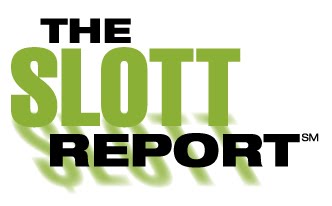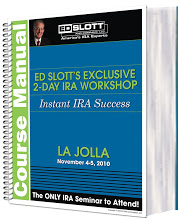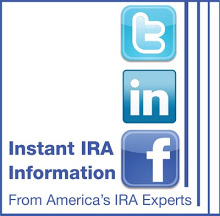This week's Slott Report Mailbag discusses some complex, timely issues involving a bank error Roth IRA contributions and naming trusts as beneficiaries. As always, we stress the importance of working with a competent, educated financial advisor to keep your retirement nest egg safe and secure.
1.
The company I work for contributes money to a SEP IRA for its employees. I have read that an individual can't contribute to a Roth IRA if they have a workplace retirement plan. My income does not exceed the limits for a Roth contribution. Does the SEP IRA contribution keep me from being able to contribute to a Roth? Secondly, the SEP contribution is less than $5,000 so if I can't contribute the entire amount to a Roth, can I contribute the difference between the SEP contribution and the $5,000 limit on contributions to a Roth?
Thank you for your assistance.
Answer:
Your Roth IRA contribution is completely separate from your SEP IRA contribution. If you are age 50 or over on 12/31 of this year and you have earned income of $6,000 you can contribute to a Roth IRA for 2010. If you are younger than age 50, the maximum you can contribute is $5,000.
There are income limits for contributions to Roth IRAs. If you are filing a joint return the phase out limit for contributions is $167,000-$177,000. That means if your joint income is over $177,000 for 2010 you can not contribute to a Roth IRA. If you are single the phase out limit is $105,000-$120,000.
2.
Hello Ed and Company,
We have our children (grandchildren) listed as secondary beneficiaries on our father's IRA. However, his will lists his wife (now deceased) as primary beneficiary and us (the children) as secondary beneficiaries. It does not specify his grandchildren, nor does it state the creation of a trust with trustees for the grandchildren.
We were told that the IRA would end up in surrogate court in minor accounts, not in trust where the grandchidren would gain access to all of the money at age 18. In addition, the children could access the money (although very difficult) via the surrogate minor account.
Is this the case? Do we need to have the grandchildren listed in the will through the creation of a trust. What is the best way to have it passed on to them.
Answer:
Your father's will does not control where his IRA will go upon death. The IRA designation of beneficiary form on file with the IRA custodian will govern the IRA assets. If the primary beneficiary of the IRA is now deceased then by operation of law the secondary beneficiaries will become the primary beneficiaries. It would be a good idea, however, to now make any necessary changes to the beneficiary form.
State law will vary on how funds are handled for minor beneficiaries. The process you describe could very well be the way your state would handle funds inherited directly by minors. The money in the IRA going to minor children can be protected and more easily accessed by having a trust named as beneficiary for the minors and the trust will govern when and how they will get the money. Naming a trust as beneficiary could be difficult. I would recommend that you seek further professional help from an attorney or competent financial advisor.
3.
Hi Ed and Company,
I watch your PBS shows all of the time. When you say, "do not take the money out of the IRA because you have to pay taxes", BUT I have a small traditional and Roth IRA worth $43,000 for both of them combined. I am 73 years old and looking for something to help me in retirement. If I want to take the money out and put it towards a home, however, you say do not touch the traditional IRA because of taxes so what is your suggestion.
Sincerely,
Parvin Roushan
Answer:
You are correct that the amount withdrawn from a traditional IRA will be taxed. However, your contribution to your Roth IRA was not income tax deductible so you can always take that money out tax-free. If you had the Roth IRA open for 5 years or longer there will be no taxes or penalties due on your withdrawals since you are over the age of 59 1/2. While Ed does state that you should leave your IRA funds in the account for as long as possible, he also says that you should not deprive yourself of necessities in order to maintain your IRA balance. If you need the funds to buy a house and you will have enough other funds to live on after purchasing your house, then use the IRA funds.
By IRA Technical Consultant Marvin Rotenberg and Jared Trexler
------------------------------------------------------------------------------
Comment, Question, Discussion Topic on your mind? Click on the Blue Comment Link below and leave your thoughts then check back to see what other consumers and advisors think.
*Copyright 2010 Ed Slott and Company, LLC
Friday, October 8, 2010
Trusts as Beneficiaries Highlights Mailbag
Posted by
Ed Slott and Company, LLC
at
10:03 AM

 Labels:
IRAs,
Mailbag,
marvin rotenberg,
Retirement,
Roth IRAs
Labels:
IRAs,
Mailbag,
marvin rotenberg,
Retirement,
Roth IRAs
Subscribe to:
Post Comments (Atom)














0 comments:
Post a Comment